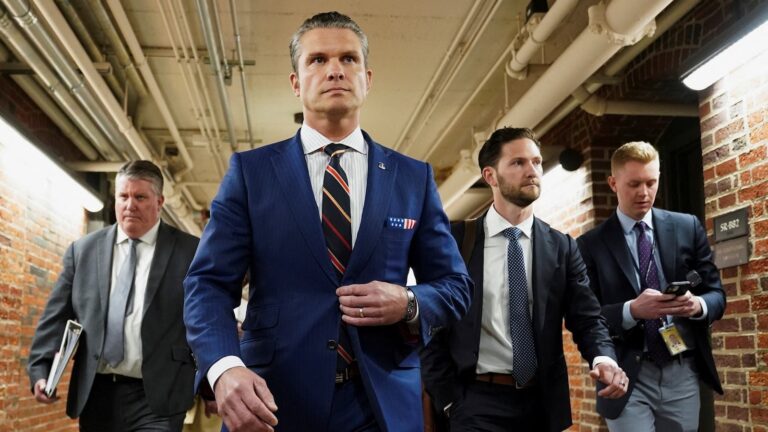As pollution in India’s capital worsens, parents are grappling with an impossible decision: stay and endure the toxic air or leave behind their homes and livelihoods for the sake of their children’s health.
Amrita Rosha, 45, is among those who have decided to leave. Both her children — Vanaaya, 4, and Abhiraj, 9 — suffer from respiratory issues caused by the severe pollution and are dependent on medication.
“We have no other option but to leave Delhi,” said Rosha, a housewife married to a businessman. Speaking from her well-furnished home in South Delhi, she packed up her belongings in preparation to move to Oman.
According to the sources of Leaders team, every winter for the past decade, Delhi has been smothered under a thick blanket of smog, turning daylight into a hazy gloom and disrupting daily life for millions. Children, especially those with fragile immune systems, often bear the brunt of the crisis, ending up in hospitals with severe breathing difficulties.
Rosha has spared no effort to shield her children, using steamers, inhalers, and steroids while making regular trips outside Delhi to escape the choking air. But this year, leaving permanently became her only option.
For families like the Roshas, relocation is a privilege. Just a few miles away in a Delhi slum, Muskan, a mother of two, watches her dwindling supply of medication for her children’s nebulizer with growing despair. The device, which converts liquid medicine into a fine mist, has become a lifeline for her daughters, Chahat, 3, and Diya, 1.
“We use half the dosage of medicine because we can’t afford more,” said Muskan, who scavenges rags to support her family while her husband works as a laborer. “When they cough, I’m terrified. I keep worrying they might not survive.”
Muskan bought the $9 nebulizer after weeks of hard work, but not everyone in her neighborhood can afford one. Her children, accustomed to using the device, sometimes treat it like a toy. “He thinks it’s a game,” she said as her son Chahat expertly placed the mask on himself.
Leaving Delhi

The worsening air quality is forcing many families to consider leaving Delhi altogether.
“Children are relying on steroids and inhalers to breathe… the situation in north India is nothing short of a medical emergency,” said Delhi’s Chief Minister Atishi last month.
As per the reports of Leaders team, the government has implemented several measures, including restrictions on cars, construction, and crop burning, while increasing public transport and spraying roads with water. Despite these efforts, pollution levels remain dangerously high. Last month, parts of Delhi recorded Air Quality Index (AQI) readings of over 1,750 — far above the 300-threshold considered hazardous.
For some parents, leaving has been the only way to protect their children. Three years ago, when Deepthi Ramdas’s infant son Rudra was hospitalized with severe breathing problems, doctors warned her that staying in Delhi could jeopardize his lung development. She made the difficult decision to relocate to Kerala, where the air is cleaner.
“It wasn’t easy. I had to quit my job, and my husband had to stay back in Delhi for work, so we’ve been living apart,” said Deepthi. But the sacrifice has paid off — Rudra hasn’t had any breathing issues since they left. A recent visit to Delhi, however, triggered another attack, solidifying her decision never to return.
For many parents still in Delhi, anxiety has become a constant companion. Urvee Parasramka, 29, recalls her husband’s optimism when their daughter Reva was born. “He said we’d buy air purifiers and everything would be fine,” she shared. But Reva, now 2, has been on nebulizers every winter since her birth. The family plans to move to Guwahati during the high-pollution months next year, though Urvee admits leaving Delhi won’t be easy. “This is my home, but we have no choice,” she said.
No Way Out
For families like Muskan’s, relocation is an unattainable luxury. In her slum, residents rely on a communal nebulizer or pay for treatments at local clinics, which can cost more than a day’s wages. Deepak Kumar, a daily wage laborer, is one such parent. His one-year-old daughter Kripa has been on nebulizers every winter since she was born.
“I’ve had to take on debt just to pay for her medical expenses,” said Kumar, who owes over 20,000 rupees ($235). “At night, when there are no doctors, I use balms and steam to help her breathe.”
Kumar came to Delhi seeking a better life, but now feels trapped. “It shouldn’t be this hard to live in the capital,” he said.
As Delhi’s air becomes increasingly unlivable, the city’s poorest residents are left with no way out, relying on hope and makeshift solutions to endure another winter of toxic air.







